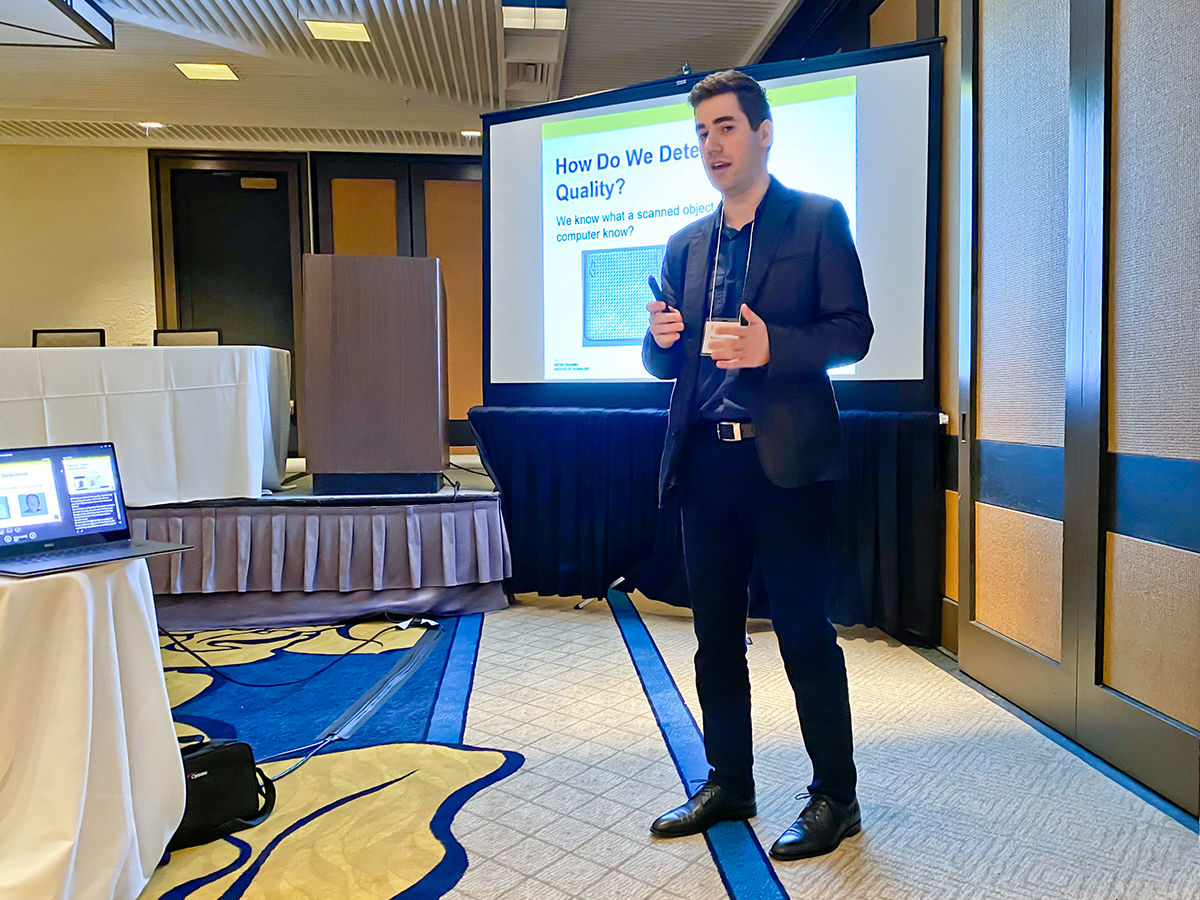Q: What did you study at BCIT and what led you here?
Alex Micsoniu: I have a diploma with distinction in Computer Information Technology (CIT) from BCIT. Before BCIT, I was a Computer Science student at UBC. However, I decided to leave UBC because the topics we were learning focused heavily on theoretical subjects; not things you can work on and change like what’s in the tech industry. In addition, BCIT tends to hire experts from industry to teach computing subjects.
Q: Congratulations on your new job! How did your program prepare you for the role?
Alex: I recently got a job at the City of Burnaby as a Client Support Assistant. It’s an internal help desk role for City employees working in the Parks and Recreation division. My program prepared me by teaching me a broad range of computer science related topics; from systems administration, to mobile app development, to data analytics. I have a strong foundation of knowledge thanks to the CIT program.
Q: What can you tell us about the expansion or evolution of careers in your specialty, and how it makes an impact?
Alex: Since the CIT program provides knowledge on many computing topics, I won’t answer where the general field is going. However, when I do continue my education at BCIT in the BTech program, I will be choosing the Network Administration and Application Security option because of how much it will change soon. With more and more of our lives entering the digital space, and that information not just being used, but sometimes weaponized, by large companies and governments, it’s important that those with an interest in keeping our individual privacy secure make large investments and innovations in cybersecurity.
I have a strong foundation of knowledge thanks to the CIT program. -Alex Micsoniu
Q: Any advice you’d give to BCIT students/grads to prepare themselves for a career in this area?
Alex: In any career in the tech industry, chances are your degree/diploma won’t be enough alone to land you the good starting careers. There are dozens of your classmates who are getting the same piece of paper, and hundreds of other students graduating in similar programs every half a year. You’ll have to make yourself stand out in one way or another. The two strongest ways of doing that is with work experience, through co-op programs or internships, or certifications related to the subject of your future career. For example, if you want to work in a cloud computing career in the future, Amazon through AWS has a ton of free resources to teach you about their service AND provide certifications all for FREE.
Q: You just got back from presenting at an international conference – what did you present?
Alex: The conference I went to was called ICNC 2020 and it was held in Hawaii. I presented a paper I wrote with three of my classmates called Overlapping Histograms for 3D Data Classification. I also presented my professor’s (Dr. Michal Aibin) paper since he could not make it to the conference, called On advantages of data driven traffic classification for dynamic routing in optical networks.
The conference was very interesting to attend. The vast majority of those who attended have advanced degrees, and the presentations they tend to give require a similar level of knowledge to fully understand. Furthermore, I was one of the youngest to be attending the convention. And despite my presentation not having the same level of sophistication as most of the other presentations, everyone there was still interested in what I had to offer and their feedback was a great source of happiness.
Q: How can this kind of research help society?
Alex: The first paper is a proof of concept on how good 3D scanners are today, are they able to take scans of high enough quality to be of practical use? Some of that practical use can be in hospitals, where doctors can take a 3D scan of your broken limb, then feed that scan to an application that can print the perfect cast that can maximize healing and comfort.
My professor’s paper focused on managing network traffic, specifically on algorithms that can reduce the volume of data being dropped due to network traffic being too high. This is useful to know, and do future research in, because every day the world is using the Internet more and more. Without innovations in how we manage all that new traffic, the global IT infrastructure may be severely hampered.
